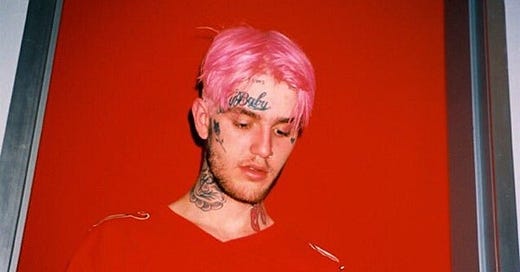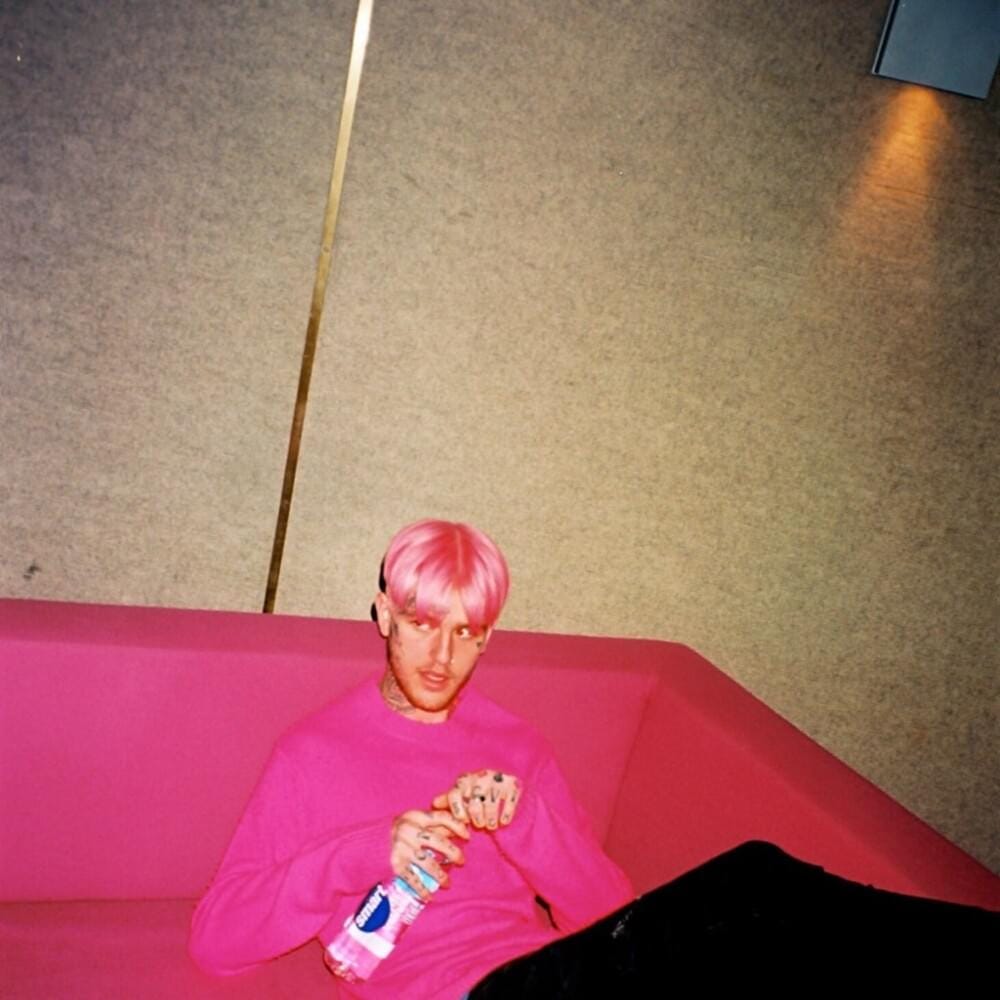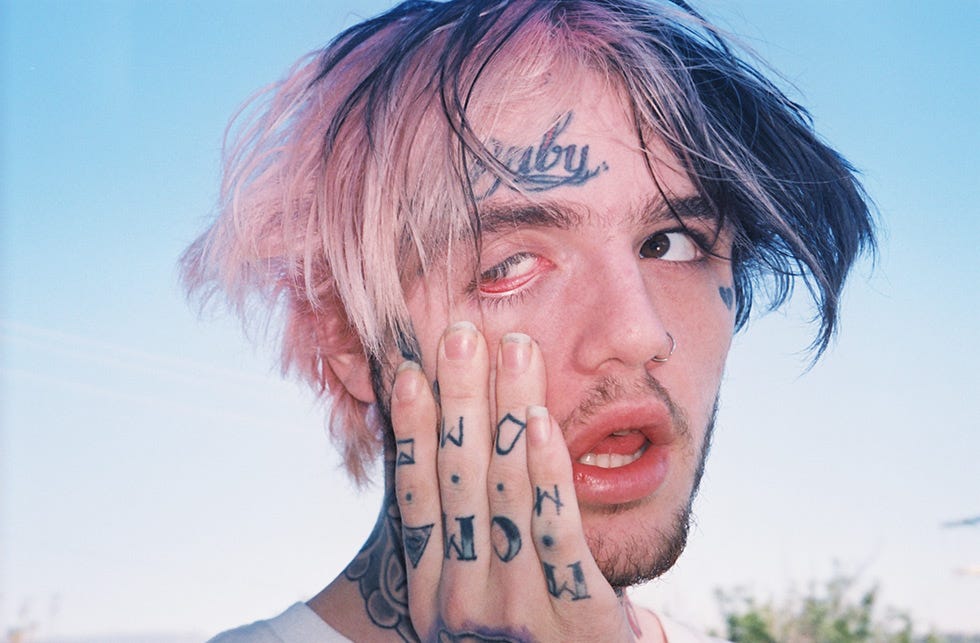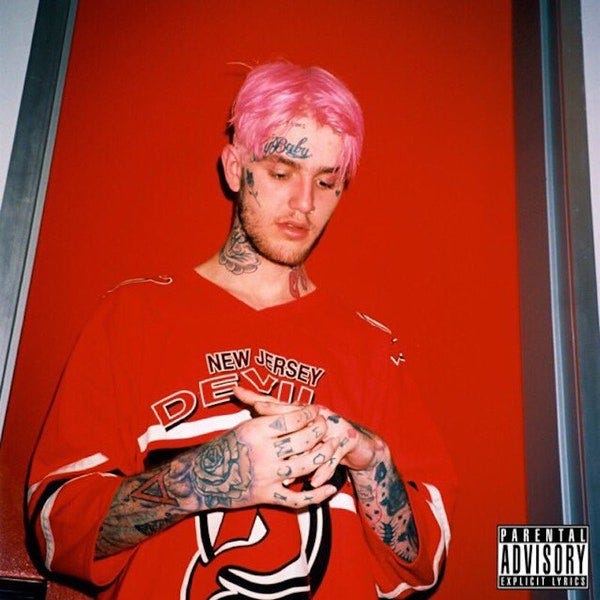Gustav Åhr aka Lil Peep was a prolific musician who hybridised emo/pop punk with trap/hip-hop. Having released his first studio album, on the cusp of becoming huge, he died of a fentanyl overdose in the back of a tour bus, aged 21.
I began making notes on him on a hunch that he might be autistic, and then I read that since his death his brother has been diagnosed and said that Gus also had autistic traits.
Gus was ‘always different since he was little.’ He began dyeing his hair bright colours as a child, eventually favouring pink as an adult, part of his dazzling style.
His father was a professor, his mother a school teacher. He had a bad relationship with his dad, and this seems to have become a taboo in his life. His parents’ divorce strongly affected him, and he stopped going to school much. He had friends and girlfriends but told them he felt ostracised and judged. Friends said it was hard to know how he was feeling and that he hid his feelings well.
He hated high school, and told a grandparent he would sometimes throw up in the mornings before going, he was so anxious. Instead, he spent a lot of time alone in a darkened bedroom. He began smoking cannabis, making music and collecting tattoos.
He inherited a strong sense of social justice from his mother, who raised her children to be anti-capitalist, and his grandfather, a historian of Latin American Marxism who frequently wrote Gus long philosophical letters. Gus tattooed his face to commit to being an outsider, intending to never get a normal job. When a friend asked him about his new ‘crybaby’ face tattoo, he rambled about oppressed people in Syria.
He successfully networked through the internet, garnering a following for the music he had been making in his bedroom. He committed to the project of making music and soon moved to LA to be among a DIY rap scene, living in a chaotic warehouse on Skid Row. A collaborator said, ‘everything we did was music. It was like drinking water.’ They also did a lot of drugs, a main theme of his music and the rest of his life.
He was enterprising and ambitious, telling the manager who signed him that he wanted to headline stadiums. He also wanted to take capitalism out of the music industry, and start a fashion label called ‘NO SMOKING’. The people managing him said he had a childlike innocence, and that he could be impulsive, stubborn and had ‘temper tantrums’.
Friends who knew him report that he was chameleonic and told people what they wanted to hear. They report two sides to his personality, the quiet sweet person who wanted to chill out, and the flamboyant reckless persona of Lil Peep, who pushed the envelope with drugs amongst his entourage/friends. Although he was closed about his feelings in person, he was very open about his troubles in his lyrics, which frequently reference depression, anxiety, suicide and dying young.
He seemed to struggle with boundaries in his social life. He felt uncomfortable about his burgeoning success and was very open and generous with some of the rewards, helping friends with money and accommodation. His management tried to shepherd him away from the scene he was in, moving him to a different part of LA but the scene followed. Gus told a friend he would go and cry in the closet because he was so overwhelmed with all the people all the time in his apartment.
On tour, fans would corner him and tell him their traumatic stories and he would listen. Shortly before his death he wrote in an Instagram post,
“I just wana be everybody’s everything I want too much from people but then I don’t want anything from them at the same time u feel me I don’t let people help me but I need help but not when I have my pills but that’s temporary one day maybe I won’t die young and I’ll be happy? What is happy I always have happiness for like 10 seconds and then it’s gone. I’m getting so tired of this.”
(Sources: The documentary Everybody’s Everything, and various articles including this one and this one and this very stoned one by friend of the family John Jeremiah Sullivan)








